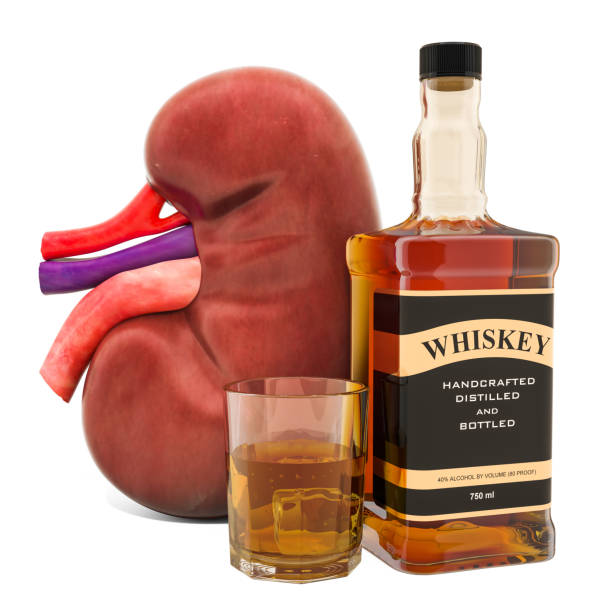Why is My Dog Not Recovering From Vestibular Disease?
If your dog is not recovering from vestibular disease, your first step should be to seek a vet’s advice. These professionals can help you diagnose the problem and provide treatment options for the condition. However, these treatments can be costly and require you to travel, and they may not be available in your area. Moreover, the treatment will depend on the disease process, severity, and underlying condition of your dog. For example, a dog with a middle ear infection will need a course of antibiotics, while a dog with an underactive thyroid may require thyroid hormone supplementation. For this reason, disease-specific treatment must be complemented with an appropriate treatment for every individual dog.
Treatment options
The outlook for dogs with vestibular disease is dependent on the underlying causes. Some infections can be treated and are easily curable, while others require more advanced medical attention. Dogs with tumors may also have a poorer prognosis. The majority of dogs will recover on their own, but it may take several months to fully recover. Some dogs may even suffer permanent head tilts as a result of the disease.
Vestibular disease symptoms are typically most severe during the first 48 hours after being diagnosed. Most dogs will begin to improve on their own after a few days. However, some pets may experience persistent vestibular symptoms for weeks or months. If your dog does not recover, your vet will likely recommend advanced diagnostic testing. The goal is to determine the cause of your dog’s condition so that you can decide the best treatment option.
Some vets recommend anti-anxiety medications to help your dog cope with the disease. CBD oil, Adaptil, and Zylkene may also help. Whether your dog takes these medications will depend on the severity of his vestibular disease. The best treatment for a dog with vestibular disease will depend on the severity of the disease and other underlying conditions, so make sure to discuss this with your vet.
Dogs with vestibular disease may have difficulty eating and drinking. Their sense of taste is just as delicate as ours, so many foods can cause your dog to reject them. Generally, foods rich in protein and fat will be more appealing to them. Foods like beef jerky and chicken broth are good options.
Diagnosis
If your dog has been diagnosed with vestibular disease and does not seem to be recovering, consult your veterinarian. You should seek treatment for the condition immediately to avoid further complications. Some forms of vestibular disease are treatable, such as ear infections, but others require specialist surgery or antibiotics.
A vet should rule out other serious conditions before administering treatment. Advanced imaging tests may be necessary to determine the underlying cause of the disease. If your dog does not respond to treatment, he or she should be referred to a specialist. In some cases, the condition may progress without treatment and require euthanasia.
Treatment for vestibular disease includes supportive therapy, intravenous fluids, and nourishment. If your dog is vomiting, your vet may prescribe an anti-nausea medication to help settle its tummy. Your veterinarian may also recommend a course of IV fluids to prevent dehydration. Although most cases of vestibular disease resolve on their own, your veterinarian may recommend physical therapy to help your dog recover.
Vestibular disease can affect the sense of balance and vision. It can interfere with walking, which can result in injuries. If you notice these symptoms in your dog, make an appointment with your veterinarian right away. There may be a more serious underlying disease that needs to be treated.
There are several different causes of vestibular dysfunction in dogs. One of these is an underlying neurological disorder, such as an underlying inflammatory disorder. MRI can help confirm the diagnosis.
Physiotherapy
If your dog is not improving following physiotherapy, there may be another underlying problem. Vestibular disease can be a symptom of a more serious ailment, such as a brain tumour or a blood clot. If your dog is experiencing these symptoms, you should see a vet to get an accurate diagnosis.
Although it may take weeks for your dog to recover from vestibular disease, you should not give up hope. Many symptoms of this condition can be very difficult for your dog to cope with, including vomiting and difficulties in eating. If you notice any of these symptoms in your dog, you should consider other treatment options to ensure their safety and well-being. For instance, you can consider elevating your dog’s food bowl if necessary, to ensure that they can reach the food dish safely.
If the cause of vestibular disease is benign, most dogs will recover on their own within two to four weeks. However, some cases will require several months of therapy to cure the condition completely. In some cases, your dog may need lifelong care. It is important to seek a neurologist’s advice if you notice any of the symptoms persisting after three weeks.
There are a number of causes of vestibular disease in dogs. It is important to get your dog checked by a veterinarian so that you can determine which treatment will be most effective for your dog. Your vet can also perform a variety of tests to help determine the exact cause of the disease.
A doctor can also prescribe antibiotics or other medicines to treat the vestibular disease. However, these can be expensive, and they may not be available in your area. The best treatment for your dog will depend on its cause, the severity of the symptoms, and whether there are other problems. For example, if your dog is suffering from an underactive thyroid, he or she might need an extra thyroid hormone supplement. Similarly, if your dog has a middle ear infection, the doctor may recommend a course of antibiotics.
Supportive therapy
Several causes can cause dogs not to recover from vestibular disease, including deep ear infections, tumours in the ear, and head trauma. Thyroid gland malfunction and inflammatory and viral diseases may also contribute to the condition. While vestibular disease is common among older dogs, it can also occur in younger dogs and can be caused by chronic head or neck trauma or a toxin buildup in the brain.
The best way to deal with a dog that is not recovering from vestibular disease is to be patient and give it time. The symptoms can last several weeks or even months. It may also take a few months or years for the dog to fully recover. However, the good news is that the condition is not life-threatening and recovery can be possible with the right treatments. In addition to the appropriate treatment, owners should make sure that they provide enough time and love for their pet during the recovery process.
If the vestibular disease is not responding to treatments, veterinarians may prescribe sedatives or other medications to help the animal relax. The dog may also be given antibiotics to treat the ear infection. In addition, additional water may be added to the dog’s food to ease its discomfort and prevent vomiting.
In addition to supportive therapy for dogs not recovering from vestibcular disease, veterinarians may also recommend MRI scans to detect underlying problems. In the majority of cases, dogs will gradually recover from vestibular disease with no further medical intervention. If the symptoms persist after several treatments, it may be a sign that the dog has a more serious condition.
Complications
If your dog is not recovering from vestibular disease, there are a number of possible causes. The condition can be caused by exposure to a toxin, allergen, or a storm. In most cases, you will need to see a veterinarian to get a correct diagnosis. Some vets may use supportive therapy such as sedatives or antihistamines, and some dogs may be prescribed antibiotics. If the underlying disorder is suspected, your vet may prescribe corticosteroids. However, there is no scientific evidence that these drugs are effective for this condition, and they are generally not recommended.
Most cases of vestibular disease are idiopathic. This means that the exact cause of the disease is unknown. In case your dog does not improve after the prescribed treatment, you should consult a specialist veterinarian. Your vet may recommend advanced imaging to rule out other more serious medical conditions.
If you have a dog with vestibular disease, it is important to seek medical treatment immediately. Even if the condition is not life-threatening, it can be dangerous if left untreated. If your dog cannot walk, eat, or sleep normally, it may be a sign of something more serious. Once you treat the underlying condition, the vestibular disease should clear up.
Vestibular disease can lead to difficulty walking and balance. In addition, it may lead to other bodily functions being impaired. In most cases, the condition will clear up on its own in seven to thirty days. Sometimes, however, it might not recover completely. In such a case, a veterinarian can administer the proper medication.
Despite the fact that a study in humans has implicated auditory tube dysfunction in the pathogenesis of PVD, it is unknown whether this is also true in dogs. The authors of this study used advanced imaging to study a group of 25 dogs that suffered from PVD.



